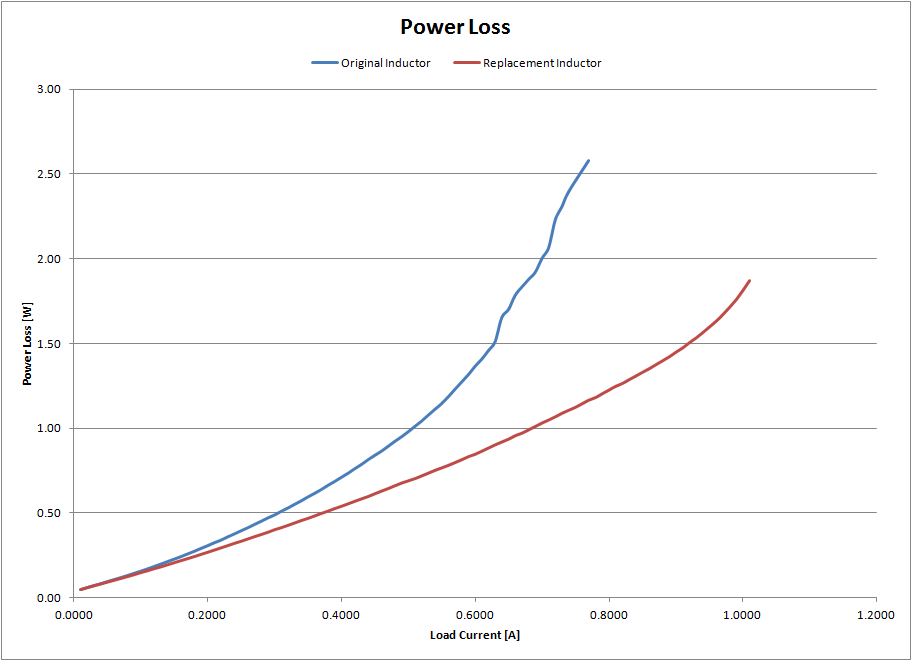
I aquired a car USB charger in need of repair and was inspired by a recent video from the EEVBlog to measure the power efficiency. The device become damaged when the insides flew out during insertion into the 12VDC car jack and the inductor was nearly sheared off the PCB. I was able to reinstall the inductor and slightly modified the circuit for easy measurements and connection to my DC electronic load.
I found during testing that the original inductor was good for up to about 0.7A of load current, well below the claimed 3.1A combined current for both USB ports. Note that the USB ports actually share the same power rails so they will both be able to source the same amount of current. Also in both cases the data pins of the USB port are tied together so there seems to be no circuity telling the charging load to draw more current on one port versus the other. After a load of 0.7A the voltage drops well below 5VDC and the device is unable to source greater current. The IC surface temperature was reaching ~115C and was most likely causing any thermal protection circuitry to trip. The converter IC is part number AD8406D but I was unable to find a datasheet to look up the specs.

At this point I decided to swap out the inductor for another less damaged one, the original had a small chip taken out of the ferrite in addition to losing one of its pins. Measuring the inductor with my LCR meter gave a measurement of about 200uH and luckily I was able to find a 200uH inductor from my junk bin. The new inductor enables a max current of 1.1A before the voltage becomes unregulated and the converter stops sourcing current.
The plots below are of the efficiency, temperature, and power loss of both inductors at an input of 12VDC. While I have no immediate use for this converter it was interesting to measure the efficiency and reinforce the measurement setup for such testing. I was able to find a few more car chargers and it may be interesting later to compare their efficiency to this one and/or explore the efficiency at different input voltages, possibly closer to a typical car’s voltage.






Looks like you found something to keep you busy on this winter day!
LikeLike